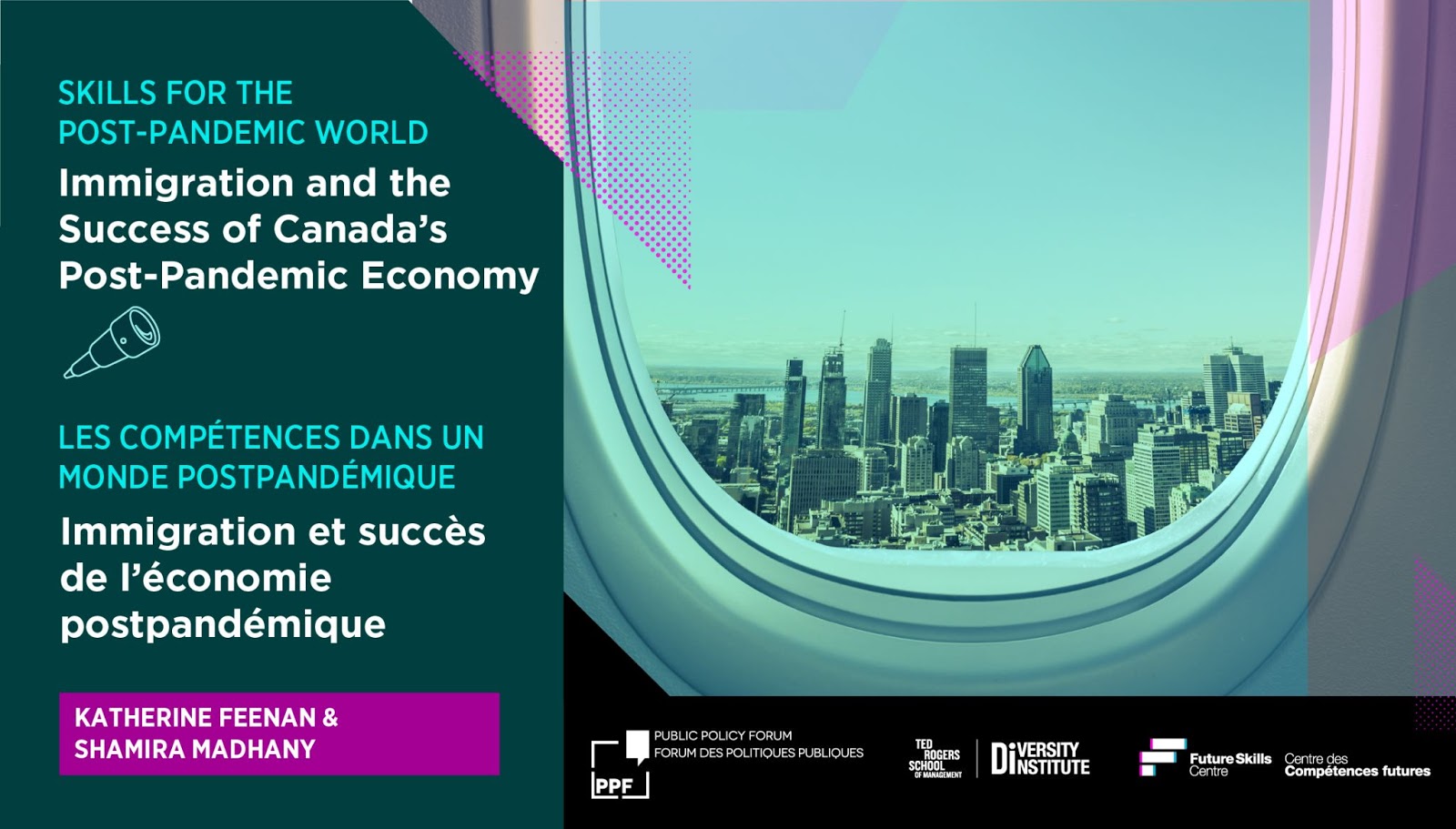Immigration and the Success of Canada's Post-Pandemic Economy

More than eight million baby boomers will be exiting Canada’s workforce in the coming years and the country’s birth rate alone is not keeping pace. Immigrants are an essential source of Canada’s population growth and are one of the key solutions to our skilled labour shortage.
Immigration and the Success of Canada’s Post-Pandemic Economy, a new report in the Skills for the Post-Pandemic World project, examines both long-standing and newly emerged barriers facing immigrants in Canada, and how policymakers might address them.
While Canada does a good job attracting highly skilled immigrant talent, our employment environment does not allow many to use their skills and credentials to their fullest potential. One sees it all too often—perhaps it is an engineer working security, or a nurse who is working the checkout at a grocery store. The COVID-19 pandemic has made the situation worse, with immigrants disproportionately impacted by decimated hospitality and service sectors and deeply affected in several other ways.
Canada usually welcomes hundreds of thousands of newcomers every year, but the spread of COVID-19 forced the government to temporarily halt immigration. Many international students had no choice but to continue their studies from their homelands this year. Some temporary foreign workers (TFWs), who face limited rights and poor working conditions in Canada, were caught in terrible COVID-19 outbreaks while working here.
“As Canada prepares a post-pandemic build-back strategy, the data shows a continued and increasing reliance on welcoming internationally trained immigrants (economic immigrants), temporary foreign workers (TFWs) and international students as an important aspect of the country’s plan for maintaining workforce growth and long-term economic strength,” write authors Katherine Feenan (external link) and Shamira Madhany (external link) .
“Ensuring those who chose to migrate, work and/or study in Canada are provided opportunities to integrate and engage in the workforce will be essential to the country’s economic success,” they argue.
Feenan and Madhany examine issues and opportunities within international credential recognition and skills training for immigrants, particularly those who have suffered job loss during the pandemic, and more broadly in the immigration system and in the social services. They also consider the possibility of anti-immigrant sentiment arising from disenfranchised Canadians who fear that newcomers may threaten their already-precarious jobs.
The report offers a number of recommendations to policymakers planning Canada’s post-pandemic recovery to help address the issues facing immigrants, including:
- Invest in childcare, career assistance, training, reskilling and mental-health services for immigrant women
- Implement a possible permanent resident stream for the lower-income end of the economy, which now relies on temporary workers
- Review the complicated process of verifying credentials and licensing, for all sectors and particularly the healthcare sector, which is experiencing labour shortages
Feenan and Madhany also identify three calls to action that can stop the gap between immigrants and their Canadian-born peers from widening even further as we build back from the COVID-19 pandemic:
- Establish a national strategy to enhance immigrant labour-market inclusion
- Put in place policies and programs targeted at mitigating disproportionate negative impacts of the pandemic on vulnerable migrant groups:
- Develop innovative tools and approaches for an immigrant-inclusive economy as Canada recovers from the COVID-19 pandemic
Skills for the Post-Pandemic World

The Skills for the Post-Pandemic World (opens in new window) project tackles key questions facing policymakers, employers, training providers and workers. It is urgent that society turn to face the fundamental changes in the labour market precipitated by the COVID-19 pandemic, and many players must rise to meet the new conditions of a post-pandemic world.
Building on the collaborative success of the Skills Next (opens in new window) series, the Public Policy Forum (external link) (PPF) and the Diversity Institute (DI), funded by the Future Skills Centre (external link) (FSC) with new support from Microsoft, come together again to face these rapid societal shifts head-on, with research looking at the future of skills, training and retraining in ways that will chart a path forward as the pandemic continues to unfold.
